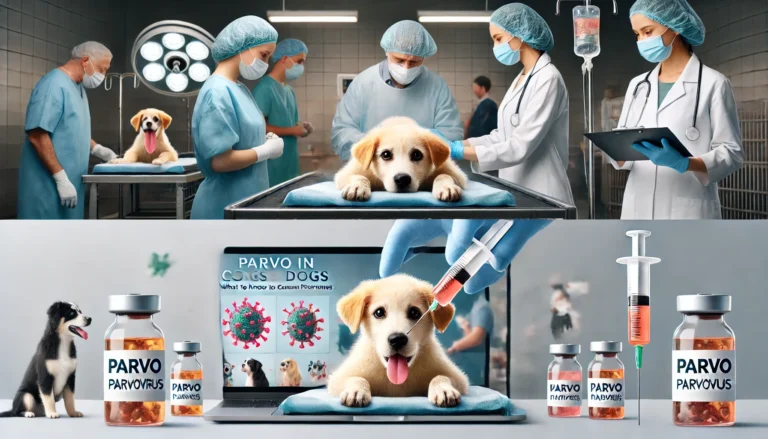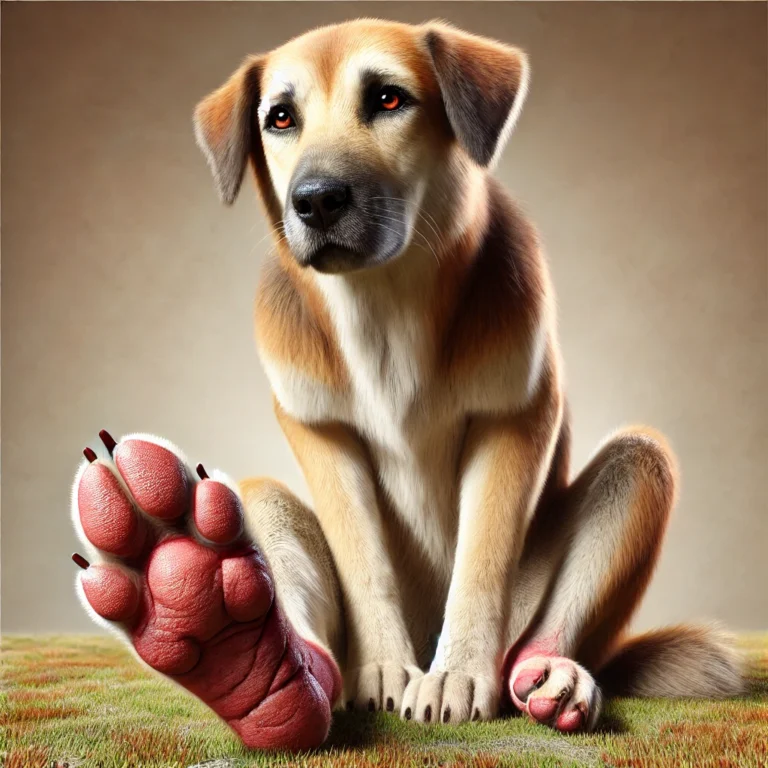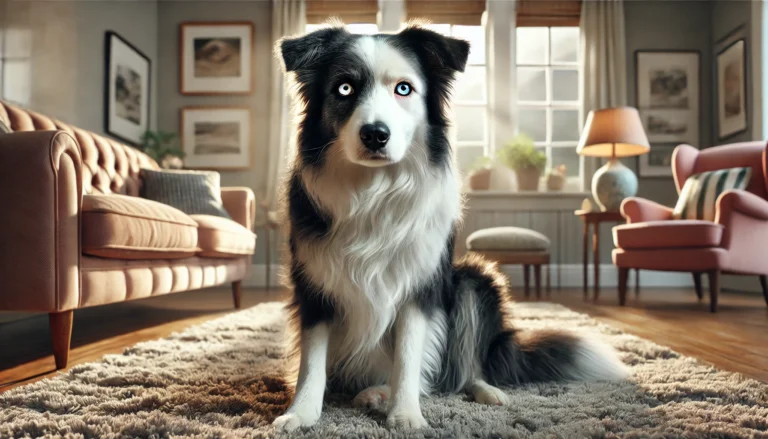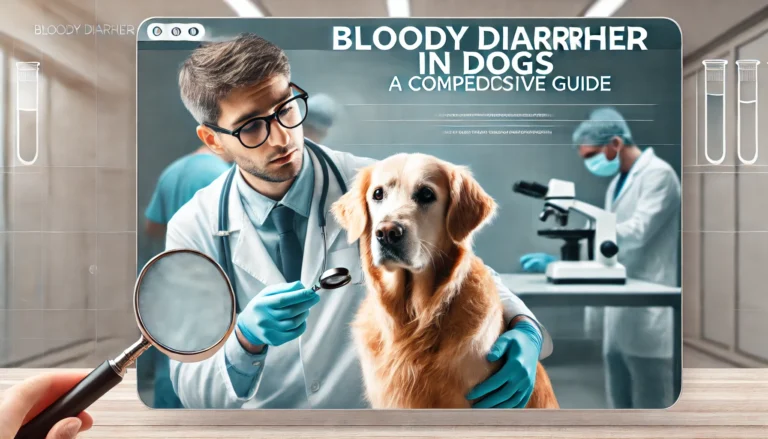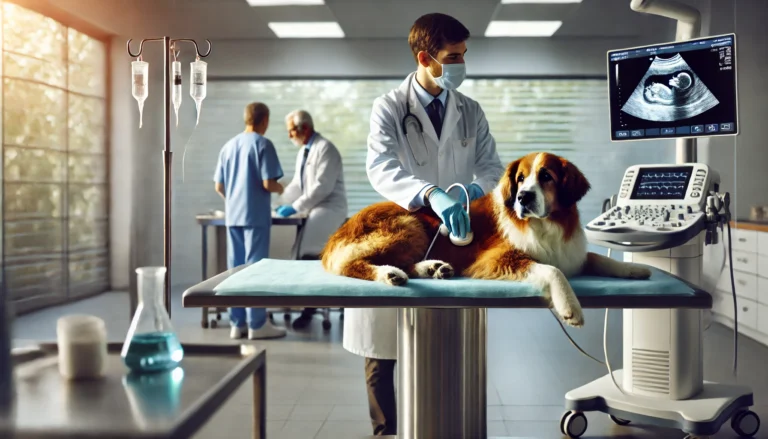Down Syndrome Dog: Can Dogs Have This Critical Condition?
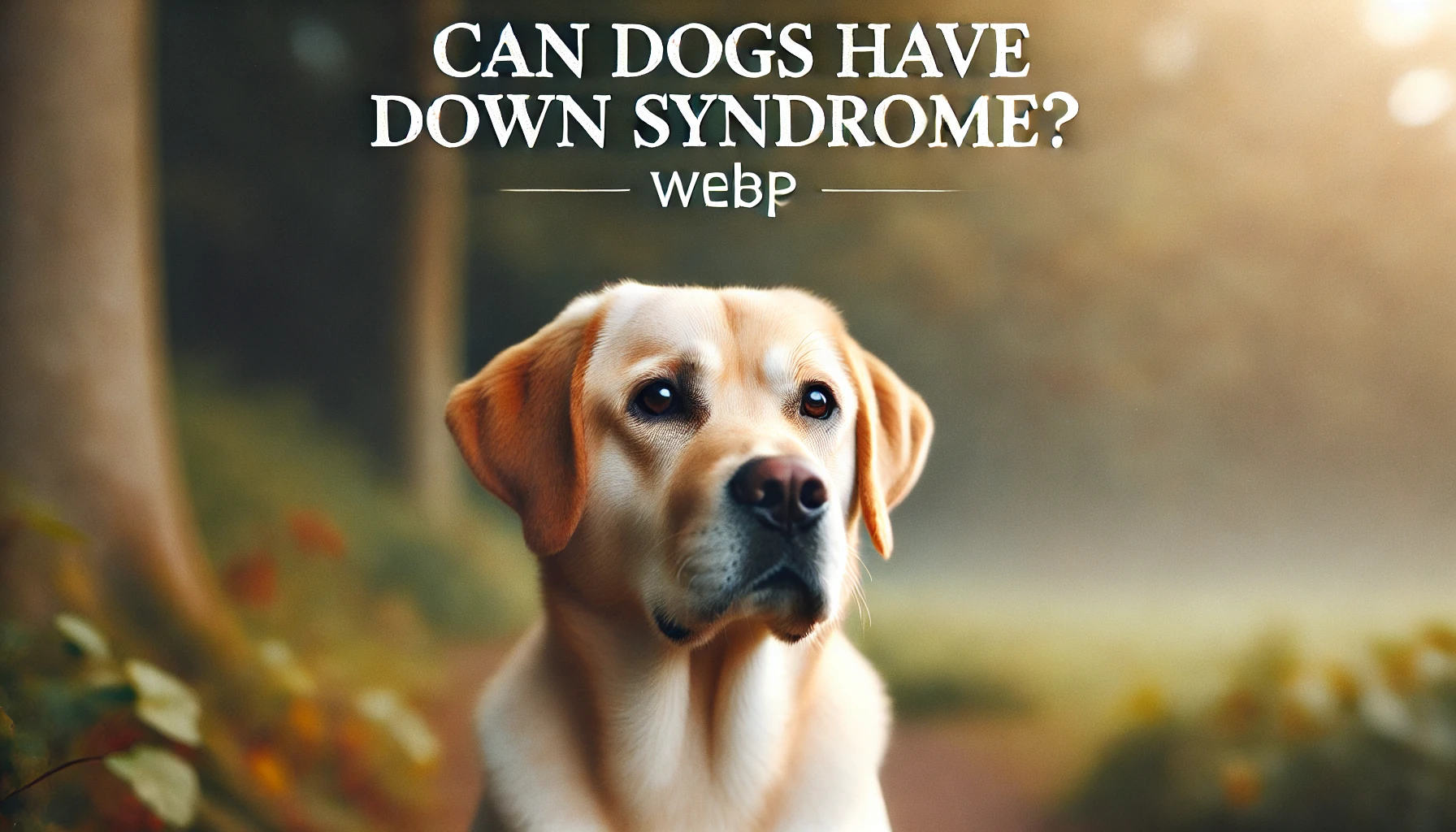
The question of whether dogs can have Down syndrome has sparked considerable interest and confusion among pet owners. Down syndrome is a genetic condition that affects humans, characterized by the presence of an extra copy of chromosome 21, leading to various physical and developmental challenges. Given the complexities of canine genetics, it is essential to explore the notion of down syndrome dog and whether dogs can truly experience a condition akin to this human genetic disorder.

Understanding Canine Genetics
To understand if dogs can have Down syndrome, we must first look at canine genetics. Dogs have 39 pairs of chromosomes, totaling 78 chromosomes, which is different from humans, who have 23 pairs. This genetic difference means that the mechanisms and effects of genetic disorders in dogs do not mirror those in humans. While there are genetic disorders in dogs, they are not classified as Down syndrome.
What is Down Syndrome in Humans?
Down syndrome in humans occurs when an individual has three copies of chromosome 21 instead of the usual two. This genetic anomaly affects physical appearance, cognitive development, and overall health. Symptoms can include distinctive facial features, developmental delays, and an increased risk of certain medical conditions.
Can Dogs Have Down Syndrome?
The short answer is no; dogs cannot have Down syndrome as it is understood in humans. However, some dogs may exhibit traits or conditions that could superficially resemble Down syndrome. This could include developmental delays, physical deformities, or cognitive impairments, but these issues arise from different genetic mutations or chromosomal abnormalities rather than an extra chromosome 21.
Genetic Disorders in Dogs
While a dog with Down syndrome doesn’t exist, various genetic disorders can affect dogs. Some of these conditions might lead to symptoms that owners might associate with Down syndrome. For instance, certain breeds may be more susceptible to congenital defects, developmental delays, or neurological issues, leading to behavioral or physical anomalies. Conditions such as:
- Cerebellar Hypoplasia: A neurological condition causing coordination issues.
- Congenital Heart Defects: Heart problems present at birth that can affect health and development.
- Developmental Disabilities: These can occur due to a variety of genetic factors.
Can Animals Have Down Syndrome?
Beyond dogs, the idea of down syndrome animals extends to other species. Some owners may wonder if cats can have Down syndrome, as the condition is unique to humans. While cats with down syndrome are often referenced in discussions, they, too, do not experience this specific genetic disorder. However, animals can exhibit genetic abnormalities that impact their health and behavior.
Signs and Symptoms
If a dog appears to have developmental or behavioral issues, it may lead to the misconception that the animal has Down syndrome. Some common signs that may arise in dogs with genetic disorders include:
- Behavioral Challenges: Difficulty with training, social interactions, and cognitive responses.
- Physical Appearance: Unusual physical traits that might resemble features seen in Down syndrome.
- Developmental Delays: Slower growth or delayed milestones compared to peers.
do you know?
The Pomsky, a delightful mix of a Pomeranian and a Siberian Husky, has captured the hearts of dog lovers around the world with its fluffy appearance, energetic personality, and friendly demeanor. This breed is known for its striking looks and lively spirit, but like all dogs, it comes with its own set of health considerations and care requirements.
Diagnosing Genetic Disorders in Dogs
Veterinarians can assess a dog’s health through various examinations and tests. If a dog is displaying concerning symptoms, such as down syndrome dog symptoms, a thorough examination will typically include:
- Physical Examination: Assessing the dog’s overall health and physical features.
- Genetic Testing: While not commonly performed, advanced genetic tests can help identify chromosomal abnormalities.
- Behavioral Assessment: Evaluating behavior patterns and training responses.
Treatment and Management
Since dogs cannot have Down syndrome, treatment is based on specific symptoms or conditions that may resemble it. Managing a dog with genetic disorders may include:
- Specialized Diets: Tailoring nutrition to address specific health needs.
- Physical Therapy: Improving mobility and managing physical symptoms.
- Behavioral Training: Custom training programs to address cognitive challenges.
Can Dogs Be Retarded?
The term “retarded” is outdated and considered offensive when discussing intellectual disabilities in humans and animals. Instead, it’s more appropriate to refer to cognitive impairments or developmental delays that some dogs might experience due to various genetic disorders.
Common Misconceptions about Down Syndrome Dog
Many misconceptions exist surrounding the idea of a down syndrome dog. Here are a few clarifications:
- Not a Human Condition: Down syndrome is a specific genetic condition in humans and does not have a direct counterpart in dogs.
- Symptoms Can Vary: Dogs can show symptoms similar to those seen in Down syndrome, but these arise from other genetic or health issues.
Conclusion of Down Syndrome Dog
In summary, while down syndrome dog is not a medically recognized condition, dogs can exhibit a variety of genetic disorders that may lead to developmental and behavioral challenges. Understanding these issues requires a comprehensive approach to canine health and genetics. If you notice unusual behaviors or physical traits in your dog, it’s essential to consult with a veterinarian for a thorough evaluation and proper care. By staying informed, you can ensure that your furry friend receives the attention and support they need to lead a happy, healthy life.
Can dogs have Down syndrome?
No, dogs cannot have Down syndrome as it is defined in humans. Down syndrome is caused by the presence of an extra copy of chromosome 21, leading to specific physical and intellectual disabilities. Dogs have a different number of chromosomes—39 pairs (78 total)—and do not have a counterpart to human chromosome 21. However, dogs can exhibit genetic disorders and developmental delays that may resemble some characteristics associated with Down syndrome, but these conditions arise from different genetic mutations.
Can dogs have autism or Down syndrome?
Dogs cannot have autism or Down syndrome in the way humans do. Autism is a neurodevelopmental disorder characterized by challenges with social interaction, communication, and repetitive behaviors, which has not been conclusively identified in dogs. While dogs can display behaviors that might appear similar to autism, they are typically responses to their environment or training. Genetic disorders in dogs can lead to developmental delays and behavioral issues, but these are not classified as autism or Down syndrome.
Why is it called Down syndrome?
Down syndrome is named after the British physician John Langdon Down, who first described the condition in 1862. He recognized a pattern of physical and cognitive traits that were consistent among individuals who shared similar features. The term was officially adopted in the early 20th century, and it highlights the historical context of the condition rather than a direct link to its genetic basis.
What is having Down syndrome like?
Having Down syndrome can vary widely among individuals. Many people with Down syndrome experience mild to moderate intellectual disability, and they may also have distinctive physical features such as a flat facial profile, slanted eyes, and a short neck. Life experiences can differ greatly; individuals with Down syndrome often lead fulfilling lives, participate in education, and form meaningful relationships. Support, early intervention, and education play significant roles in enhancing their quality of life.
What is the IQ of Down syndrome?
The IQ of individuals with Down syndrome varies significantly, but it is typically lower than the average population. On average, people with Down syndrome may have an IQ ranging from 50 to 70, which corresponds to mild to moderate intellectual disability. However, it’s important to note that IQ scores alone do not determine a person’s potential or abilities. Many individuals with Down syndrome can excel in various skills and activities, given the right support and environment.
What are 5 symptoms of Down syndrome?
Five common symptoms of Down syndrome include: 1) distinct facial features, such as a flat face and slanted eyes; 2) a shorter stature compared to peers; 3) a single transverse palmar crease (a line across the palm); 4) reduced muscle tone (hypotonia); and 5) an increased risk of congenital health issues, such as heart defects. These symptoms can vary in severity among individuals with Down syndrome.
Animals with Down syndrome
While Down syndrome is a condition specifically associated with humans, some animals may exhibit genetic abnormalities that could resemble traits seen in Down syndrome. However, these conditions are not identical to Down syndrome. Various animals, including dogs and cats, can experience genetic disorders, but they are typically classified differently and do not have a direct correlation to Down syndrome as understood in humans.
Can cats have Down syndrome?
Cats cannot have Down syndrome as it is defined in humans. Like dogs, cats have a different chromosomal structure, which means the genetic factors leading to Down syndrome are not applicable. However, cats can experience genetic disorders and developmental issues that may present with symptoms similar to those seen in Down syndrome, but these are caused by different genetic anomalies.
How many chromosomes do dogs have?
Dogs have 39 pairs of chromosomes, totaling 78 chromosomes. This number is crucial for understanding canine genetics and distinguishing genetic disorders. Each breed may have variations in certain traits, but the overall chromosomal structure remains consistent across all dogs.
Pitbull with Down syndrome
The term “Pitbull with Down syndrome” is misleading, as dogs cannot have Down syndrome. However, a Pitbull or any dog can exhibit certain traits or behaviors that may be confused with those associated with Down syndrome. These behaviors may arise from developmental disorders or other health issues, but they do not indicate Down syndrome.
Down syndrome Pitbull
Similar to the previous point, the label “Down syndrome Pitbull” does not reflect a medically recognized condition. Pitbulls, like all breeds, can experience genetic disorders that affect their development and behavior, but these conditions are not classified as Down syndrome. Owners should seek veterinary guidance if their dog displays concerning symptoms.
Pug with Down syndrome
A “Pug with Down syndrome” is a misnomer. While Pugs can have health issues and genetic disorders, they do not have Down syndrome. Conditions such as developmental delays or physical abnormalities in Pugs should be evaluated by a veterinarian to determine the underlying cause and appropriate treatment.
Bulldog with Down syndrome
Similar to Pugs and Pitbulls, the term “Bulldog with Down syndrome” is not accurate. Bulldogs can exhibit genetic disorders that impact their health and development, but these are not classified as Down syndrome. If a Bulldog shows signs of developmental or behavioral challenges, a veterinarian should assess the situation for appropriate care.
Down syndrome German Shepherd
The phrase “Down syndrome German Shepherd” is also misleading. While German Shepherds may have their own set of genetic health concerns, they cannot have Down syndrome as it is recognized in humans. Any health issues or developmental delays in German Shepherds should be evaluated by a veterinarian to determine their nature and provide the necessary support and treatment.
Golden retriever with Down syndrome
Like other breeds, a “Golden Retriever with Down syndrome” is a mischaracterization. Golden Retrievers can experience various genetic health issues, but they do not have Down syndrome. If a Golden Retriever displays unusual behaviors or health problems, it is essential to consult a veterinarian for an accurate diagnosis and effective treatment.

